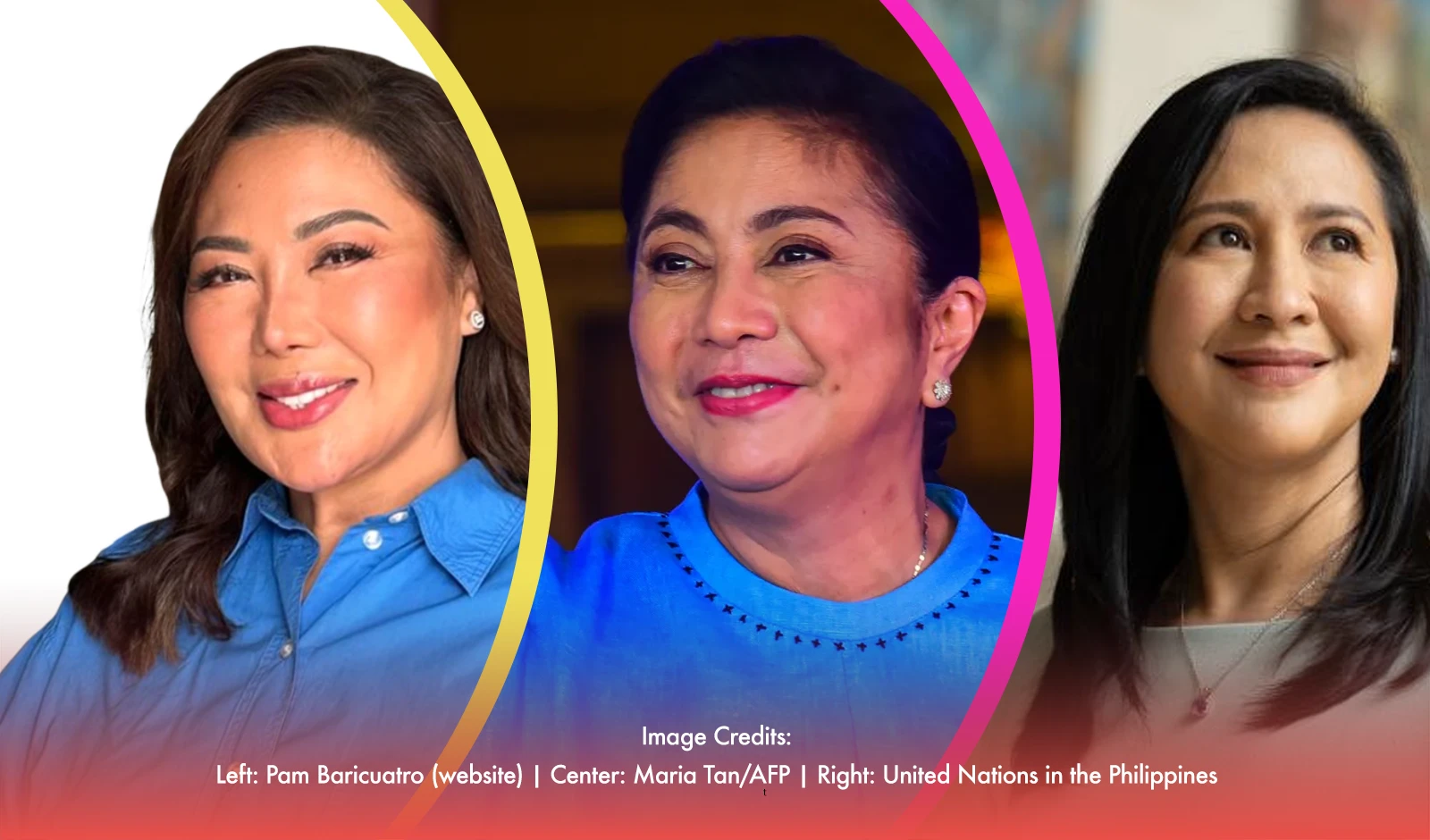The 2025 Philippine midterm elections marked a significant shift in the country's political landscape, with women achieving unprecedented victories across various levels of government. Notably, in the CALABARZON region—comprising Cavite, Laguna, Batangas, Rizal, and Quezon—women secured gubernatorial seats in four out of five provinces, with Cavite being the sole exception.
RELATED: [#Halalan2025 Recap: Is Celebrity Power Not Enough Anymore?]
A New Era Of Representation
This surge in female leadership is not confined to CALABARZON. In Cebu, Pam Baricuatro unseated the long-standing incumbent to become the new governor. Similarly, in Iloilo City, Raisa Treñas made history as the city's first female mayor. These victories signify a broader national trend towards embracing women in positions of power.
In Naga City, former Vice President Leni Robredo made history by becoming the city's first female mayor. Running under the Liberal Party, Robredo's landslide victory reflects her enduring commitment to public service and the trust she has cultivated among Nagueños. Her campaign emphasized good governance, transparency, and inclusive progress, aiming to continue the legacy of her late husband, Jesse Robredo, who also served as Naga’s mayor.
In Quezon City, Mayor Joy Belmonte secured her third and final term with an unprecedented 1,030,730 votes, marking a landslide victory. This overwhelming support underscores the trust QCitizens have in her leadership and her commitment to delivering quality public service that is “Tapat, Malinis, and Mahusay.”
Reshaping Power Dynamics
The Philippines has long grappled with patriarchal norms, despite being the first Asian country to grant women the right to vote in 1937. Historically, women's representation in elected positions has been limited, with women holding only 24% of such roles in 2022, down from 30% in 2017.
Several factors contribute to this shift:
Public Disillusionment with Traditional Politics: The electorate's growing dissatisfaction with entrenched political dynasties and traditional male-dominated leadership has opened the door for alternative candidates, many of whom are women.
Grassroots Mobilization: Women leaders have effectively harnessed grassroots movements, social media, and community engagement to build robust support bases.
Role Models and Precedents: Figures like former Vice President Leni Robredo have paved the way, demonstrating effective leadership and inspiring a new generation of women to enter politics.
Inspiring Change
While these victories are commendable, challenges remain. The political arena still harbors systemic barriers that women must navigate. However, halalan 2025 have undeniably set a precedent, signaling a transformative period in Philippine politics where competence and inclusivity are increasingly valued over traditional power structures.
As the nation looks forward, the success of these women leaders offers hope for a more equitable and representative political future.
RELATED: [The 2025 Elections And The Myth Of The "Youth Vote"]








